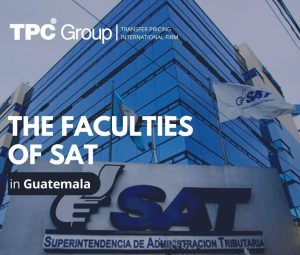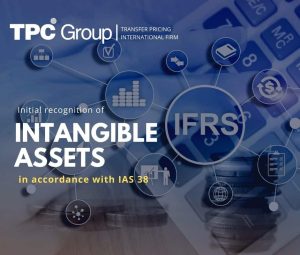On March 24, 2021, the Dirección General de Tributación or General Directorate of Taxation (“DGT”) published Resolution DGT-R-14-2021, which establishes guidelines for the processing of los Acuerdos de Precios por Anticipado or Advance Pricing Agreements (“APA”) in Costa Rica.
What is an APA? It is an agreement between the Tax Administration and the income tax taxpayer that requests it, to establish in advance an appropriate set of criteria, procedures, and critical assumptions in order to determine the Transfer Pricing for transactions with related entities during a given period.
The purpose of this article is to provide information on the main guidelines established in the aforementioned resolution with respect to the APA.
APA Application Requirements
According to article 2 of the resolution, the taxpayer must comply with the following requirements:
- Application addressed to the General Director of Taxation and the application filing to the Subdirección de Acuerdos Previos de Precios de Transferencia or Sub-directorate of Preliminary Transfer Pricing Agreements belonging to the DGT (hereinafter, SAPPT).
- Application with the signature of the legal representative of the company, with sufficient power to do so.
- Attach information regarding the local company and corporate information, in accordance with DGT-R-049-2019, which must be filed in digital format. In case the SAPPT deems it necessary, it may require further information.
- The documentation must be submitted in Spanish, in case of having original documents in other languages, an official translation must be provided, previously consulted in writing to the SAPPT.
- Indicate e-mail address in order to receive the pertinent notifications.
In addition, the standard has established additional requirements for the exchange of information to which the APA will be subject, as detailed below:
- Identification data of the direct parent company, such as corporate name, identification number and tax domicile. The standard states that the direct parent company is which owns the majority of the applicant’s shares.
- Identification data of the ultimate parent company, such as corporate name, identification number and tax domicile. It is taken to mean as such a Constituent Entity of a Multinational Group that meets the following requirements:
- Owning directly or indirectly an interest in one or more entities comprising the Multinational Group, such that it is required to file Consolidated Financial Statements in accordance with the accounting principles in its jurisdiction of residence, or would be required to do so if its participation were traded on a Stock Exchange; and
- There is no other Constituent Entity which directly or indirectly has the same interest referred to above.
- Indicate the main activity of the applicant taxpayer and the direct parent company.
- If there are members of the intermediary group participating in the commercialization chain of any of the transactions included in the APA, the applicant must provide its identification data.
APA Minimum content
The APA must file, among others, the following minimum content:
- Place and date of subscription.
- Identification of the undersigned taxpayer and other related parties involved in the transactions subject to the APA.
- Description of transactions, including currency of origin and analysis methodology.
- Determination of prices or margins, according with the arm’s length principle.
- Tax periods to be covered by the APA.
- Causes that give rise to its conclusion.
- Reasons for DGT’s approval of the proposal.
Deadline for APA Filing
The DGT must resolve the request within 6 months, which may be extended for up to 6 more months, depending on the complexity of the operations.
In case the term is extended, the DGT must communicate such decision to the taxpayer. Nonetheless, if at the end of the first 6-month period, the Administration does not communicate any extension or does not issue its decision on the APA, the negative silence will be applied, i.e., the taxpayer’s request will be rejected.
Application Denial
The following are grounds for denial of the APA application:
- Not providing the information required by the Authority, as established.
- During the negotiation stage, the Tax Administration determines that the taxpayer provided inaccurate, erroneous or false information.
- Not coinciding the DGT with the valuation indicated by the applicant to establish the Transfer Pricing.
- When the taxpayer is not notified of the extension of the aforementioned 6-month period.
APA Validity
The APA will be valid for up to 5 fiscal periods, which depending on what is stated in the application, may start from the fiscal year in which the application is filed or from the following fiscal period.
APA Modification
In case the taxpayer wishes to modify the APA, the application must be filed to the SAPPT office within a maximum period of two months from the occurrence of the events giving rise to the application.
It will notify the taxpayer, who will have two months from this date, to formulate a proposal for modification or explain the reason why such significant variation would not have occurred if the DGT becomes aware of variations that may be significant.
The Tax Administration will have four months to resolve in both cases.
APA Renewal
The taxpayer may request the APA Renewal, which may be valid for five fiscal periods. This application must be filed within 6 months of the APA expiration.
The SAPPT will have a period of six months from the renewal application filing, which may be extended for another six months depending on the complexity of the study. If no resolution is reached, the negative silence will be applied, and the application will be considered rejected.
APA Information Exchange
The information indicated in the APA is subject to the “Exchange of Spontaneous Information” rules, according to article 7 of the “Convention on Mutual Assistance in Tax Matters”.




